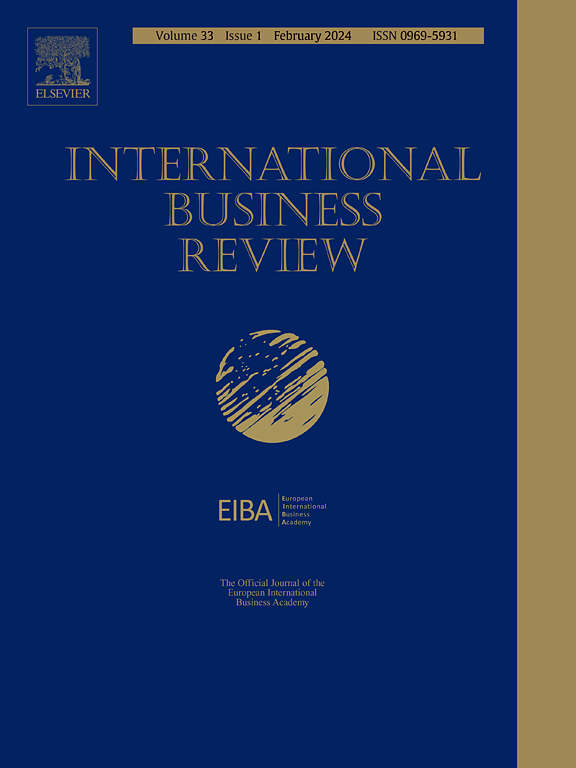When can resistance to a standardization policy result in destandardization? The case of corporate language implementation
IF 5.9
1区 管理学
Q1 BUSINESS
引用次数: 0
Abstract
The implementation of corporate language policies is widely regarded as a strategy for improving communication and coordination across globally dispersed organizations. However, employees who experience a mismatch between the corporate language and their competencies or job requirements may resist the policy or attempt to change it, as documented in existing language-sensitive international business research. Nevertheless, the long-term effects of resistance against a language policy initiative have yet to be explored. We applied a two-year qualitative study following the top management’s decision to use English as a corporate language in a Danish organization. Results showed that discrepancies between external job requirements and policy directions were used by employees as a source of power to legitimize reinterpretations of the policy leading to a language destandardization process with important consequences for the organization. These findings contribute to literature on language policy implementations by describing how negotiated reactions change the practice of a policy.
什么时候对标准化政策的抵制会导致去标准化?公司语言实现的案例
企业语言政策的实施被广泛认为是一种改善全球分散组织之间沟通和协调的策略。然而,正如现有的对语言敏感的国际商业研究所记录的那样,在公司语言与他们的能力或工作要求之间存在不匹配的员工可能会抵制政策或试图改变政策。然而,抵制一项语言政策倡议的长期影响还有待探讨。在一家丹麦组织的高层管理人员决定使用英语作为公司语言之后,我们进行了为期两年的定性研究。结果表明,外部工作要求和政策方向之间的差异被员工用作重新解释政策合法化的权力来源,导致语言去标准化过程,对组织产生重要影响。这些发现通过描述协商反应如何改变政策的实践,为语言政策实施的文献做出了贡献。
本文章由计算机程序翻译,如有差异,请以英文原文为准。
求助全文
约1分钟内获得全文
求助全文
来源期刊

International Business Review
BUSINESS-
CiteScore
14.10
自引率
6.90%
发文量
95
审稿时长
62 days
期刊介绍:
The International Business Review (IBR) stands as a premier international journal within the realm of international business and proudly serves as the official publication of the European International Business Academy (EIBA). This esteemed journal publishes original and insightful papers addressing the theory and practice of international business, encompassing a broad spectrum of topics such as firms' internationalization strategies, cross-border management of operations, and comparative studies of business environments across different countries. In essence, IBR is dedicated to disseminating research that informs the international operations of firms, whether they are SMEs or large MNEs, and guides the actions of policymakers in both home and host countries. The journal warmly welcomes conceptual papers, empirical studies, and review articles, fostering contributions from various disciplines including strategy, finance, management, marketing, economics, HRM, and organizational studies. IBR embraces methodological diversity, with equal openness to papers utilizing quantitative, qualitative, or mixed-method approaches.
 求助内容:
求助内容: 应助结果提醒方式:
应助结果提醒方式:


